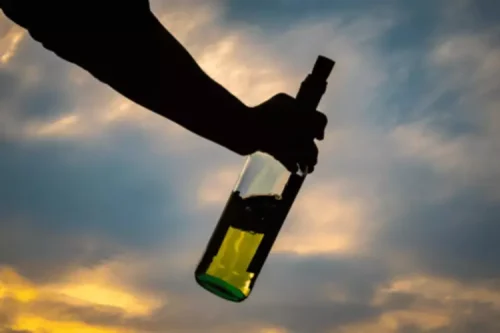
Furthermore, it is important for winemakers to be aware of their own practices and processes in order to avoid introducing too much histamine into the wine during production. Knowing the potential risk posed by histamines will help ensure that the wine is safe and enjoyable for everyone to consume. This effect can also make you feel hot when you drink alcohol, but it can also lead to short-term nasal congestion. The blood vessels around your nasal cavity can expand, making it a bit more difficult to breathe normally.
Does drinking alcohol increase histamine levels?
If you’re looking for a way to prevent sneezing when you drink, try making your cocktails with fresh fruit juices instead of using pre-made mixes. This will help reduce the number of histamines in your drink and make it less likely to trigger a sneeze. If you find that certain drinks trigger your sneezing, try switching to a different type of alcohol. For example, if wine makes you sneeze, try drinking vodka or gin instead. And if cocktails make you sneeze, try making your own with fresh fruit juices instead of pre-made mixes.
Why Does Wine Cause a Stuffy Nose?
As such, The TTTB has proposed a change to the labeling requirements which will require winemakers to list any ingredients that may contain histamines on the label. While alcohol can help you fall asleep faster, it has a negative effect on sleep quality and duration. This is why people who drink alcohol at bedtime (especially in excess) may fall asleep quickly, but they are also more likely to experience fatigue and insomnia in the long run. Alcohol increases your risk of breast cancer because it causes an increase in estrogen levels, and damages DNA, which can lead to the development of cancer cells. Many people are familiar with common side effects of alcohol, including lowered inhibitions, euphoria (i.e., feeling “tipsy”), decreased coordination, and hangovers. However, alcohol can also have effects with which many people may not be familiar.
Beer contains sulfites, which can irritate allergies
- To reduce the risk of adverse reactions, it is important to avoid wines that contain sulfites.
- It occurs when your body has difficulty metabolizing the histamines found in certain foods and drinks, such as wine or beer.
- Some signs of anaphylaxis include swelling, itching, tightening of the throat and mouth, a weak or rapid pulse, fainting, shock, and loss of consciousness.
Symptoms of histamine intolerance can include sneezing, hives, headaches, nausea, and digestive issues—similar to a common allergic response. The onset of symptoms is usually noticed by slightly more laboured breathing after consuming alcohol. Most sufferers will first report minor breathing difficulties, traditionally accompanied by a noticeable increase in heart rate. While it doesn’t happen to all individuals with this condition, it’s still fairly common. Labored or restricted breathing can be commonly brought on by alcohol intolerance.

These problems make it difficult for the body to break down alcohol properly. This is likely because wine contains histamines, which trigger allergies. Allergy testing can determine if a person is allergic to histamine or other compounds found in red wine. A skin prick test or blood test may be used to detect an allergic reaction to the particular compounds that are present in red wine.

- Alcohol intolerance can cause immediate, uncomfortable reactions after you drink alcohol.
- Alcohol intolerance is a genetic condition where the body struggles to break down alcohol efficiently, leading to symptoms such as a stuffy or runny nose.
- Additionally, dehydration caused by alcohol consumption can also contribute to sinus congestion.
- Sneezing after drinking beer can be caused by a variety of factors, including alcohol intolerance, allergies, or sensitivity to specific ingredients in beer.
- Interestingly, non-allergic rhinitis is another condition that mimics allergies but is not triggered by the same immune response as seasonal allergies.
If you have ever experienced swelling of the tongue or throat, or trouble breathing after drinking beer, it is advised to stop drinking beer until you have seen a doctor. For many individuals, alcohol-induced sneezing is indeed temporary and subsides can alcohol cause sneezing soon after consuming alcohol. However, if it persists or becomes a consistent reaction, seeking advice from a healthcare professional is recommended. In most cases, alcohol-induced sneezing is harmless and not indicative of an underlying medical condition.

How To Flush Sulfites Out Of Your Body?

You might be sensitive to sulphites if you also react to mustard and dried fruits like dried apple rings, dried pears, apricots, raisins, prunes, and figs. In response to this, many countries have recommended maximum histamine levels for wines, ranging from 2 mg/L in Germany to 10 mg/L in Austria. However, studies have found that a large percentage of red and white wines exceed these recommendations. Most wines don’t state their histamine content on the label, which can make it difficult to know what you’re choosing. Alcohol intolerance is a genetic condition where an individual’s immune system overreacts to alcohol.

Alcohol is also a diuretic, meaning it increases the amount of water we expel from our body. “Alcohol may in some people aggregate skin conditions like urticaria (hives),” says Nurse Shaw. If you experience mild symptoms, you may have a food sensitivity or intolerance rather than a true allergy. In the case of beer, people typically have a sensitivity or intolerance to one of its components, such as a basic ingredient, chemical, or preservative. The most common allergens in beer include grains, modified grain proteins, hops, yeast, molds, barleys, additives, and sulfites. It is not uncommon for people to experience sneezing fits after drinking beer.
Vasodilation Causes Stuffy Nose After Drinking, Too
One explanation suggests that alcohol may dilate blood vessels, inducing nasal congestion. Another theory proposes that alcohol’s dehydrating effect can dry out the nasal passages, leading to irritation and sneezing. If sneezing after drinking beer is a recurring issue, there are several strategies that can help manage or prevent this reaction. Alcohol-induced hives can last anywhere from a few minutes to several hours, depending on the severity of the reaction and the individual’s response. Antihistamines may help reduce symptoms, but if hives persist or worsen, medical attention may be needed. If your body is suddenly rejecting alcohol, it could be due to alcohol intolerance, a reduction in enzyme production, an underlying health issue, or medication interactions.
- Intolerance could also arise from preservatives, such as sulphites, commonly used in alcoholic drinks, leading to reactions like nasal congestion.
- To reduce the risk of unpleasant reactions, it is important to be aware of any potential triggers and take steps to avoid them.
- However, many people are unaware of the surprising connection between alcohol and allergies.
- For example, Italian winemaker Peri Bigogno produces wines with a certified histamine content under 0.5 mg/L.
- I mean sneezing at least 5-10 times in a minute, mucous and runny nose and all.
Can sneezing after alcohol consumption be a sign of an underlying health condition?
A 2019 study highlighted alcohol as a significant risk factor for liver disease, particularly cirrhosis. Experts, including doctors and dietitians, encourage moderation in alcohol intake. If you have these symptoms after drinking beer, call 911 or go to the nearest ER. Interestingly, non-allergic rhinitis is another condition that mimics allergies but is not triggered by the same immune response as seasonal allergies. Studies have shown that drinking can trigger non-allergic rhinitis symptoms. While the exact mechanisms behind this link alcoholism symptoms are not yet fully understood, it’s an area of ongoing research.
